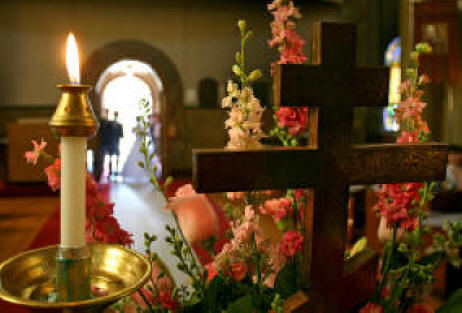Filipino Wedding Traditions

Filipino weddings, known as kasalan, are among the most beautiful and elaborate celebrations in the world. Deeply rooted in cultural and spiritual values, these ceremonies reflect the Filipino people’s profound reverence for the sanctity of marriage. As such, weddings in the Philippines are not just events—they are meaningful, symbolic occasions designed to honor the union of two souls and the merging of two families.
The Wedding Attire
The bride traditionally wears a stunning all-white gown, representing purity and new beginnings. The groom dons the iconic Barong Tagalog, a hand-embroidered formal shirt made from fine fabrics such as jusi or piña (pineapple fiber). Lightweight, sheer, and often worn over a white undershirt, the Barong is both elegant and distinctly Filipino. Male guests and members of the entourage may also wear variations of the Barong, adding to the sense of unity and cultural pride.
Ceremony Highlights
Filipino wedding ceremonies are rich in tradition, with many customs reflecting the values of family, faith, and commitment. A central aspect of the ceremony involves the participation of principal sponsors—individuals chosen by the couple who serve as mentors or “godparents” to their marriage. Some sponsors play silent, symbolic roles, while others actively participate in key rituals.
The Processional
The groom typically walks down the aisle alone or accompanied by his parents. He is followed by the best man and groomsmen, often chosen from close friends or family members. They are later joined at the altar by the bride, who traditionally walks down the aisle on the right side of her father (or whoever is giving her away). This placement allows the groom, standing to her right at the altar, to receive her without obstruction.
Symbolic Ceremonies
Several unique and meaningful rituals are performed throughout the ceremony:
-
The Veil Ceremony: During the Sanctus (a sacred moment in the Catholic mass), veil sponsors gently place a ceremonial veil over the bride’s head and drape it over the groom’s shoulder. This act symbolizes unity and being “clothed as one.”
-
The Cord Ceremony: A ceremonial cord, often shaped into a figure-eight, is looped around the couple’s shoulders by cord sponsors, representing everlasting fidelity and the binding power of marriage.
-
The Coin Ceremony (Arras): The officiant blesses thirteen gold or silver coins, which the groom pours into the bride’s hands. These coins symbolize prosperity, shared responsibility, and the couple’s mutual support.
-
The Ring Ceremony: Rings are blessed by the officiant and exchanged, symbolizing eternal love and commitment.
Reception Traditions
Following the ceremony, the celebration continues with a vibrant and joyous reception. True to Filipino spirit, weddings are lively gatherings filled with music, dancing, and feasting. One notable tradition during the reception is the release of a pair of white doves, which represent peace, harmony, and the couple’s hopes for a blissful future together.
The reception also includes the ceremonial cutting of the wedding cake, often accompanied by performances, speeches, and other personalized festivities that highlight the unique bond between the bride and groom.
The Heart of the Celebration
At its core, a Filipino wedding is a powerful expression of family, community, and enduring love. It beautifully blends centuries-old traditions with spiritual symbolism, creating an unforgettable experience for everyone involved. Unlike many Western weddings, Filipino ceremonies emphasize not just the couple, but also the vital role of extended family and sponsors—ensuring that the union is not just between two individuals, but between two interconnected communities.
Disclaimer: Filipina Fiancee Visa Service is a private company and is not affiliated with any government agency. We provide comprehensive support to help you obtain your visa and/or green card; however, our services do not include legal advice, legal representation, or any legal services. Filipina Fiancee Visa Service is not a law firm and is not licensed to practice law in any state. Neither the company nor its employees claim to possess specialized knowledge of immigration law or provide legal guidance of any kind.
